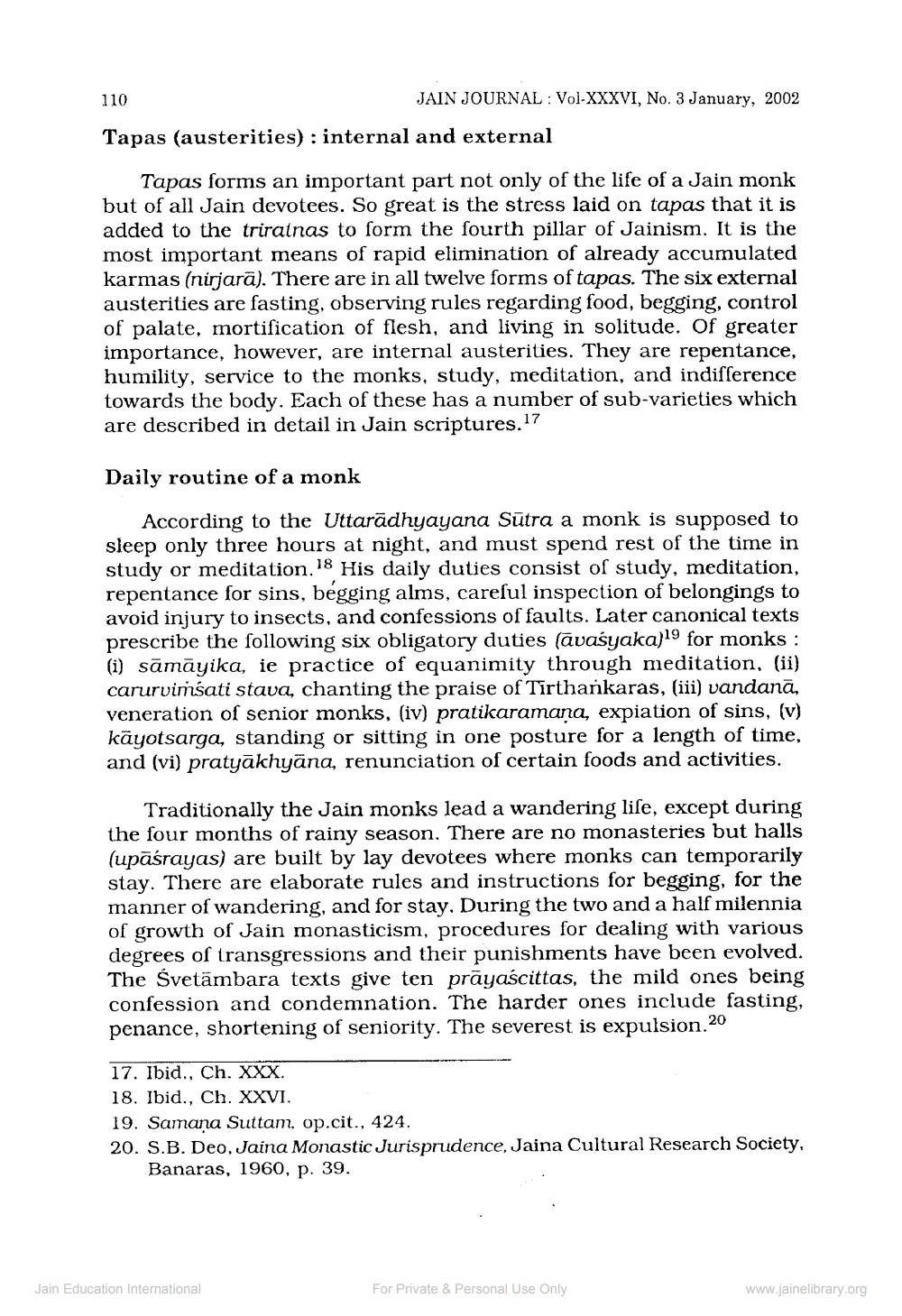________________
110
JAIN JOURNAL: Vol-XXXVI, No. 3 January, 2002
Tapas (austerities) : internal and external
Tapas forms an important part not only of the life of a Jain monk but of all Jain devotees. So great is the stress laid on tapas that it is added to the triratnas to form the fourth pillar of Jainism. It is the most important means of rapid elimination of already accumulated karmas (nirjarā). There are in all twelve forms of tapas. The six external austerities are fasting, observing rules regarding food, begging, control of palate, mortification of flesh, and living in solitude. Of greater importance, however, are internal austerities. They are repentance, humility, service to the monks, study, meditation, and indifference towards the body. Each of these has a number of sub-varieties which are described in detail in Jain scriptures.17
Daily routine of a monk
According to the Uttaradhyayana Sutra a monk is supposed to sleep only three hours at night, and must spend rest of the time in study or meditation. 18 His daily duties consist of study, meditation, repentance for sins, begging alms, careful inspection of belongings to avoid injury to insects, and confessions of faults. Later canonical texts prescribe the following six obligatory duties (avasyaka)19 for monks : (i) sāmāyika, ie practice of equanimity through meditation, (ii) carurvimsati stava, chanting the praise of Tirthankaras, (iii) vandanā, veneration of senior monks, (iv) pratikaramana, expiation of sins, (v) kayotsarga, standing or sitting in one posture for a length of time, and (vi) pratyakhyāna, renunciation of certain foods and activities.
Traditionally the Jain monks lead a wandering life, except during the four months of rainy season. There are no monasteries but halls (upasrayas) are built by lay devotees where monks can temporarily stay. There are elaborate rules and instructions for begging, for the manner of wandering, and for stay. During the two and a half milennia of growth of Jain monasticism, procedures for dealing with various degrees of transgressions and their punishments have been evolved. The Svetambara texts give ten prayaścittas, the mild ones being confession and condemnation. The harder ones include fasting, penance, shortening of seniority. The severest is expulsion.20
17. Ibid., Ch. XXX.
18. Ibid., Ch. XXVI.
19. Samana Suttam, op. cit., 424.
20. S.B. Deo, Jaina Monastic Jurisprudence, Jaina Cultural Research Society, Banaras, 1960, p. 39.
Jain Education International
For Private & Personal Use Only
www.jainelibrary.org




